In Search of More Student Voice & Agency
Every spring, we ask our middle schoolers to look at each of their courses as well as other areas of their life, think back to September, and reflect on how far they’ve come and what they’d still like to accomplish before the year’s end.
This comes together in a portfolio in a format of their own choosing and is presented at their student-led conferences on Family Weekend. The students often bring an honesty both brave and unassuming to the process, and the results are usually inspiring and even moving.
Most teachers I know go through a similar process this time of year, looking on the one hand at our students, what they’ve learned, and what we had hoped and still hope for them, and on the other hand at ourselves and our role in our students’ growth.
In social science, agency is the capacity of individuals to act independently and to make their own choices – Wikipedia
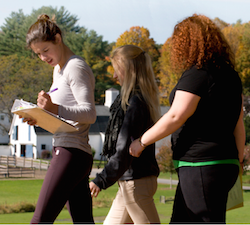
And the push hasn’t stopped there. My daily interaction with my online network keeps me thinking about structures and practices in schools that support or inhibit learning. One of the ideas put forth in my learning network recently is the proposition that anyone who wants the best for students should retire when they turn 55 or when they have been teaching 30 years.
I’m 56 and finishing up my 31st full-time year, so according to that logic, I should be gone already. And I very much don’t ever want to be that teacher who hangs on too long, hurting students despite the best of intentions. So it’s a concept worth considering.
Everything I know
Let’s start with core values that I’m not likely to abandon unless I learn something new that’s awfully dramatic and compelling and goes against everything I’ve experienced over 56 years on this planet and 35 years in classrooms.
I believe every human being deserves respect. I believe kids instinctively love learning, and it’s the job of teachers to make space for and support that natural process to the best of our ability. I believe in the importance and primacy of student voice and student agency.
I also believe in the importance of mixing research and experience in my practice. Everything I know points to independent and free choice reading as the single most important thing I can do with my students. Everything I know points to independent and free choice writing as the single most effective way my students can improve their writing skills – grammar and mechanics included if I use feedback well. Everything I know says that feedback is most effective if handled through conversation (whether in person or in writing) and focused on a specific student’s primary needs.
Everything I know says that we need to focus explicitly on eliminating external motivation and creating a context where intrinsic motivation can grow. And everything I know says that student voice, choice, and agency are fundamentally important to their level of engagement.
Toward more student voice and choice
I teach a 7th grade Humanities course. One change this year’s students brought to the course was to propose keeping read-aloud books for each unit but eliminating the one-group-novel-per-unit requirement I had in place. (This year’s class also talked about eliminating independent reading, but I said I was not going to bend on that, and gave them a brief version of the research explaining why.) They did see value in reading and discussing a group novel, so we kept a “read and discuss at least one group novel per year” requirement.
They also designed a unit on persuasion that included an essay, a prepared debate, and an impromptu debate. Their final unit is titled “Personal genre exploration” and is built on the theme question, “How does (something) affect people’s lives?” And we did our annual poetry unit, which is the only one I design.
All this meant they spent less time writing essays than in many previous years. And yet, the quality of their essays has grown no less than in classes that came before. I can’t help but think that the fundamental thread in everything they’ve done is to take in, weigh, organize, and eventually share information and their judgments about it. Did building those skills in multiple ways help them with essay writing skills? My instinct is yes.
 Could we go even further?
Could we go even further?
So I’m now wondering to what extent I should work with next year’s Humanities 7 class not just on having them design units in the sense of coming up with the content – the themes, questions, books – but also on the structure of the course itself.
Could I tell them at the beginning of the year, look, here’s what I know about how people learn (or should I have them research and teach each other about that)? Here is how independent reading and writing will work in this course. Now, how we go about organizing group units will be decided by us as a community.
Could we think about why we do school, what goals can best be met in this class, and how we can go about meeting them?
If so, would I tell them, “Fundamentally, all Humanities courses are about taking in new information, thinking critically about it, and sharing your thinking and your learning with others. Commonly in schools, that is done through essays, discussions, and presentations, and you’ll be doing those throughout the next six years or more. Given all that, what can and should we be doing here?”
These are the kinds of questions I’m asking myself these days. At one level, it looks like a radical reshaping of the course. But at another level, it’s really just the next logical step for a course that was always been meant to be about democracy in action, about student voice and agency. We’ll see where I go with this.
And trickier questions await
For one example, there’s no research that points to the importance of homework, while on the other hand there’s lots of research pointing to the importance of free time, of play, of human interaction, of sleep. Yet, I also know of no research that differentiates the effects of different types of homework.
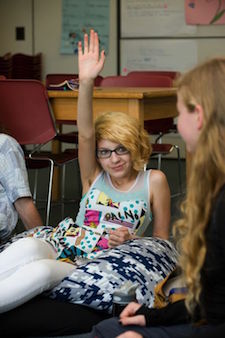
Meanwhile, whatever other changes I might be considering, I suppose it’s safe to say that I can go at least one more year past the arbitrary “30/55 and out” rule without hurting my students. As long as I keep listening to young people, I’ll know the “Yo! Time to retire!” signal when I hear it. If indeed that time should ever come.
Bill Ivey is a teacher and Middle School Dean at the all girl Stoneleigh-Burnham School in Greenfield, Massachusetts.


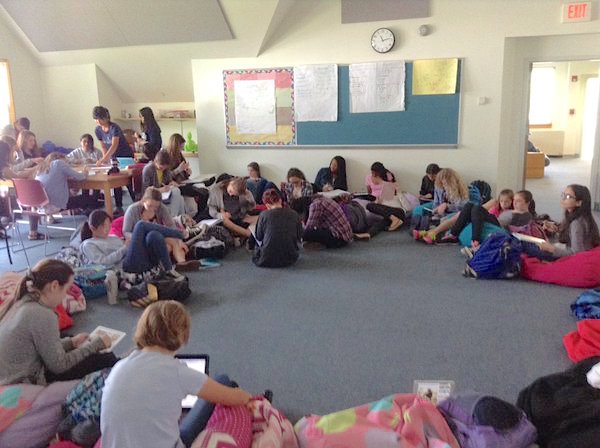
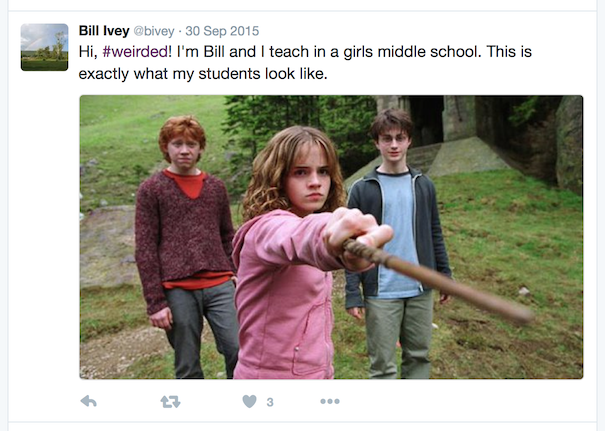
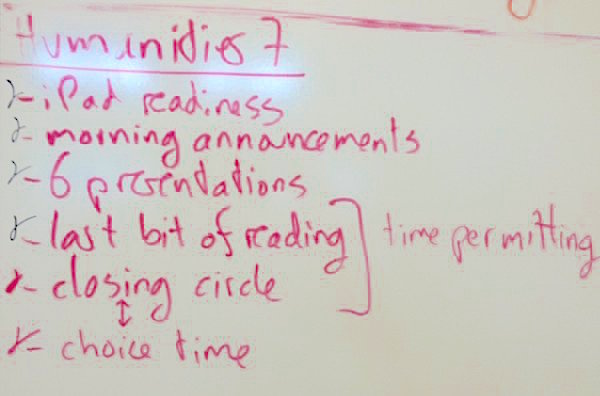

































Re: homework
You might wish to look at Dr. John Hattie’s research.
Thanks. I have heard good things about him, and will definitely take your advice.